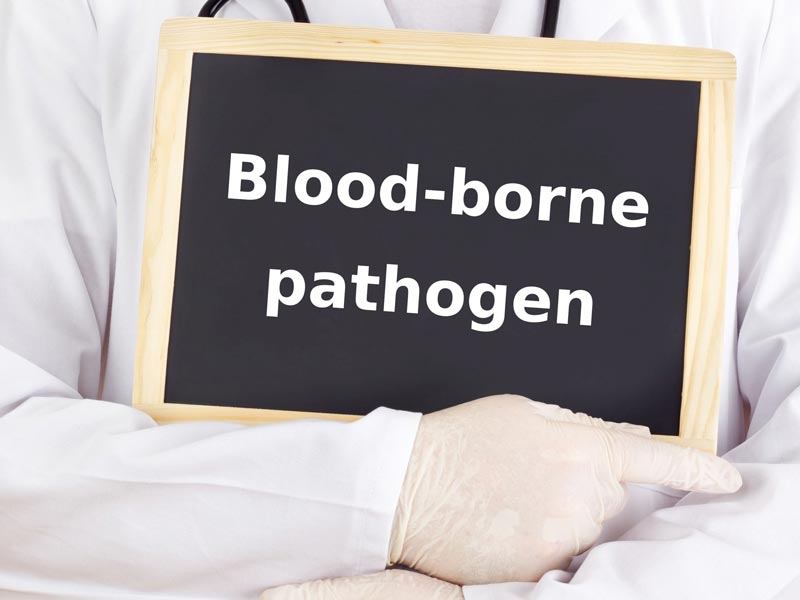
[cs_content][cs_section parallax="false" style="margin: 0px;padding: 45px 0px;"][cs_row inner_container="true" marginless_columns="false" style="margin: 0px auto;padding: 0px;"][cs_column fade="false" fade_animation="in" fade_animation_offset="45px" fade_duration="750" type="1/1" style="padding: 0px;"][cs_text]How are bloodborne pathogens (BBP) and putting on personal protective equipment (PPE) important to you? The average person knows about having gloves on when someone is bleeding. The problem is that most people do not think of having these simple devices near them in the case of an emergency.[/cs_text][cs_text]It is hard to keep in mind dangers that we cannot see and in our day to day lives we tend to forget these unsightly dangers. Bloodborne pathogens are all over the place and in areas we least expect. According to the Health and Safety Institute, some BBP can live in dried blood for up to 7 or more days. The use of PPE is so common now that everyone regardless of job needs to be trained in the prevention of spreading pathogens.[/cs_text][x_custom_headline level="h2" looks_like="h3" accent="false"]PPE in the WorkPlace [/x_custom_headline][cs_text]In the workplace, there are requirements for every company to have PPE ready for all employees when exposed to BBP. OSHA regulation 29 CFR 1910.1030 states that gloves and washing stations have to be available for exposure of any bloodborne pathogen.[/cs_text][cs_text]What is wrong with this regulation? That all companies have to have available supplies for PPE, but it does not indicate training for staff. The OSHA regulation only mandates through the needs of the work or profession. If we make BBP training mandatory in all fields of work, there will be a greater aware of the danger and prevention of the spread of these diseases.[/cs_text][x_custom_headline level="h2" looks_like="h3" accent="false"]PPE for your Personal Life[/x_custom_headline][cs_text]When you are out with friends, do you have gloves on or near your person? If the answer is no, you are not alone. Most people do not think of being prepared for possible emergencies. We all tend to buy a First Aid kit at our local drug store, but having access to gloves can greatly reduce your exposure to BBP. When you train in the use of PPE, you will prevent the spread of Hep B, Hep C, and HIV. These diseases are a fraction of many other bloodborne pathogens out there.[/cs_text][x_custom_headline level="h2" looks_like="h3" accent="false"]How do we get Trained? [/x_custom_headline][cs_text]You may be asking how you can properly train in the use of PPE and BBP. If your company requires you to know CPR/AED and First Aid, you should have BBP training within those classes. Some training groups do not put much effort on BBP. Being prepared for any medical emergency is very valuable in the workplace as well as in personal life. This empowers you to know how to save lives and prevent the spread of disease. If you are not required to know CPR or First Aid, then we highly recommend in taking a Bloodborne Pathogen class. BBP training takes about an hour to complete, and it will help you understand how you are saving lives without knowing it. The Beating Heart Center have classes in BBP, CPR/AED, and First Aid. We implement the proper use of PPE equipment, to prevent exposure. If you like, you can take one of our classes for as little 20 dollars.
Take a Bloodborne Pathogen class your family will be happy that you did.
[/cs_text][/cs_column][/cs_row][/cs_section][/cs_content]